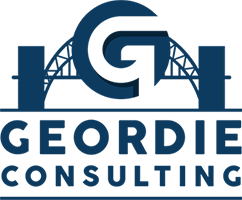

As an introduction to why we do what we do, allow me to share some summary points. We are approaching the close of yet another year, so what can we say 2023 has taught us so far and what do we want to learn before the year end?
Identity is something that we all have to have. We require a “Me” to be happy and fulfilled, however as the “Me” is an internal construct it is shaped by our experiences and those are further influenced by the results of prior experiences. Think of a baby, over the first few months it learns to use its senses in air, as well as develop gross and fine motor skills. There’s no lesson for this, the baby simply learns from experience. We never stop doing that and our experiences good and bad will continue to shape us throughout our existence. There is a word for how those experiences shape us, Bias.
A bit like feeling like you need a cup of coffee to start the day, none of us really do – there is no chemical addiction, at most there is a preference. We may like a cup of coffee or drink it as a habit in our preferred establishment, but such choices rarely enhance our lives as much as we think. What about a nice cup of tea or a glass of water? Remember it is a privilege to have access to such a choice. Choice accounts for a lot, it presents a sense of freedom. Too many choices and you can become weighed down, too little choice can result in feeling constrained and resentment. There is a balance and a mid-line to most things which is more favourable to the masses – bias.

All of this is not to say our lives are a hollow shell of what we thought they were. Living a life of purpose is of course about finding where our biases and so values come together in the best way. I hope you can see the challenges with the logic of that sentiment. Once you decide that you want to live your best life consider what that means in the context of the wider society. As there are minimums that you believe should be in place in terms of education, sanitation and healthcare? Now what are the choices you have to achieve your best you?
To make an example I met a Maasai when in Kenya, he had done his university degree at the university of Nairobi leaving the bush for several years. At the end of day, he got tired of city life and returned to his community in the Mara triangle to live a traditional, nomadic lifestyle. Simple and uncomplicated in comparison to city life. He made that choice and now lives the life that makes him happiest, being of service within his community. He had the freedom of choice to go away and return, he saw the value of what he did in the city but was equally welcomed back to his community when he was ready to return, with a broader perspective and a broader knowledge base. Another great example of how bias is not always negative.
Choice and fulfilment are a significant part of the whole equation in what is a far bigger subject than simply living in a society afflicted with labels and so many conditions aligned with a modern-day contingent. We all work to pay the bills, but are we fulfilled by our work or does our work enable fulfilment in other areas of our lives. Bias cannot be neutral, it can only be accepted or internally rallied against. When our “Me” sees the world as inherently unfair it can make us believe that we have somehow been “short changed”, that we should get more automatically. Replaying those with our acceptable minimums can help, but ultimately, we have to rally against our internal monologue and understand the wider connotations of the demand. We can all help each other if we accept that we must work together. Accepting that everyone is unique and special, with different strengths and weaknesses. If we were encouraged to unite and explore the possibilities of a unified society of individuals, how would that look, how would that feel, how through life and business would that operate?

Data Analytics requires us to let go of “Me” and instead look at the process, where is data being produced and how can it be used to track progress/outcomes? The impartialness of analysis is therefore central to what Geordie Consulting does and what you must do to get the best results from your analysis. Assumptions or bias can creep in from anywhere and you must be ready and willing challenge it or at the very least ensure it is recorded.
We only know what we think we know at the end of the day and if the structures of society were truly functioning optimally, we wouldn’t see things play out in the way that we are. To change your life, change your perspective and in the words of the late John F Kennedy, “In any given moment we have two options: to step forward into growth, or to step back into safety.” It’s a form of mindfulness and presence to accept what is, but not hang onto it.

A fine example of how the process can lead the analysis.
#geordielife #datadrivendecisionmaking #dataliteracy

